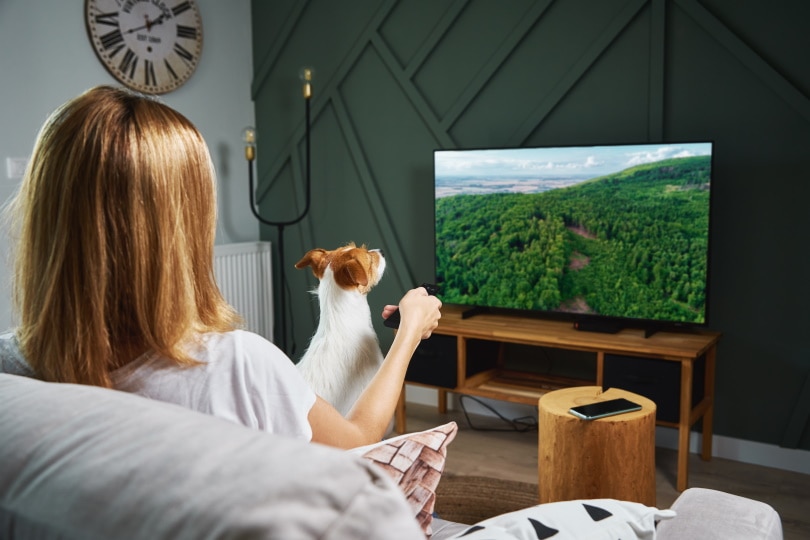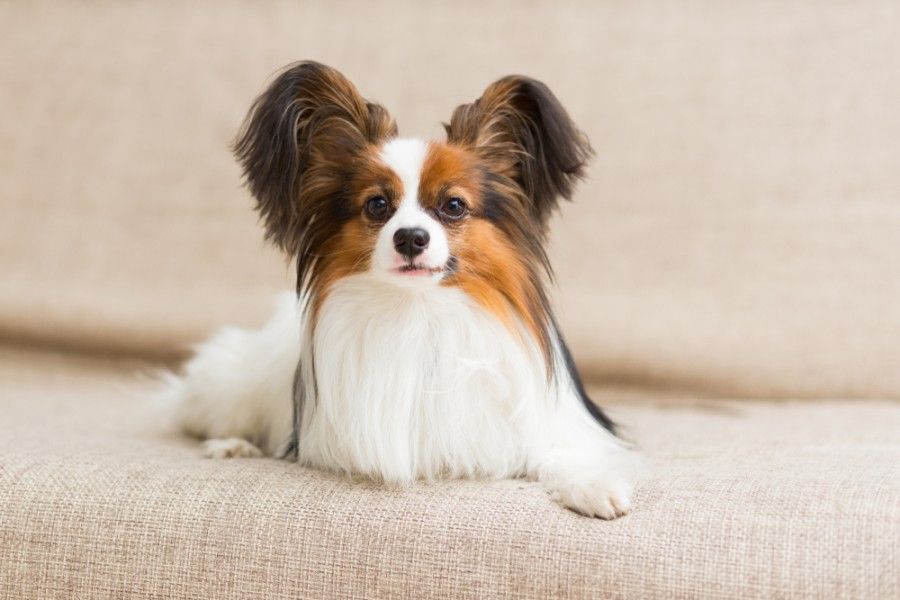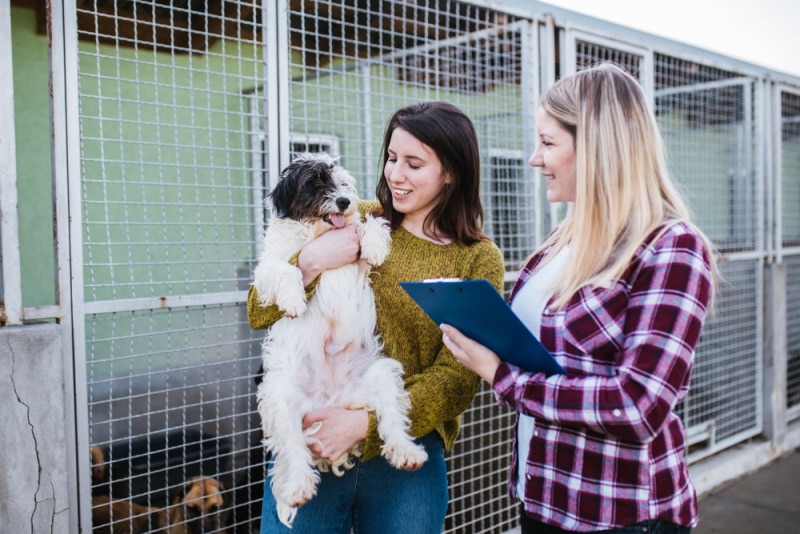Do Dogs Feel Jealousy or Envy? Facts, Signs & Care Tips
Updated on
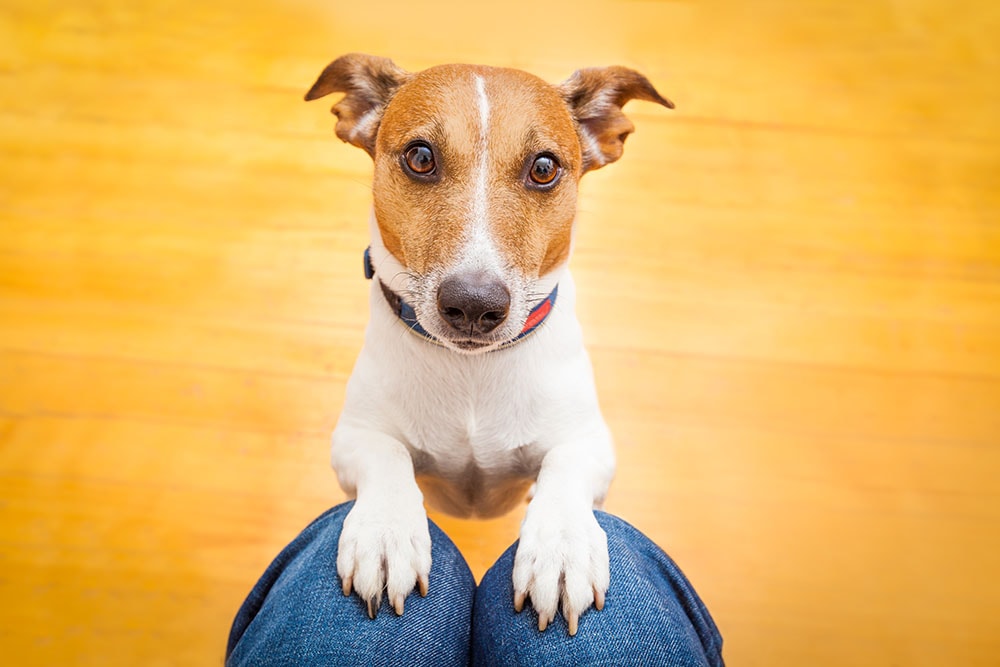
Click to Skip Ahead
Until recently, it was believed that humans were the only species on Earth with complex cognition capable of feeling jealous. We all know that feeling with the green-eyed monster rears its ugly head. But are our pets capable of feeling those same jealous emotions? Do they have the cognitive ability to reflect on themselves and understand intentions?
A recent study proves that yes, dogs can feel jealousy and envy. Keep reading to learn more about this fascinating emotion and its related behaviors.
Do Dogs Feel Jealousy?
Researchers found that dogs certainly exhibit the negative side effects of deep love – jealousy and envy.
Studies show that dogs will even show symptoms of jealousy when they imagine their owners interacting with their “rivals”. In the study, the owners petted the were given three objects: a fake dog, a children’s book, and a plastic pumpkin. They were to interact with each of the objects in the same fashion, showering them with love and attention as their dogs watched on.
Dogs in the study exhibited jealous behaviors when they witnessed their owner displaying affection towards an animatronic stuffed dog. They did not exhibit the same behaviors while watching their owner interact with the pumpkin or while they read the children’s book aloud, which suggests that the jealousy was triggered by the social interaction and not simply the fact that their owners avoided them for the inanimate object.
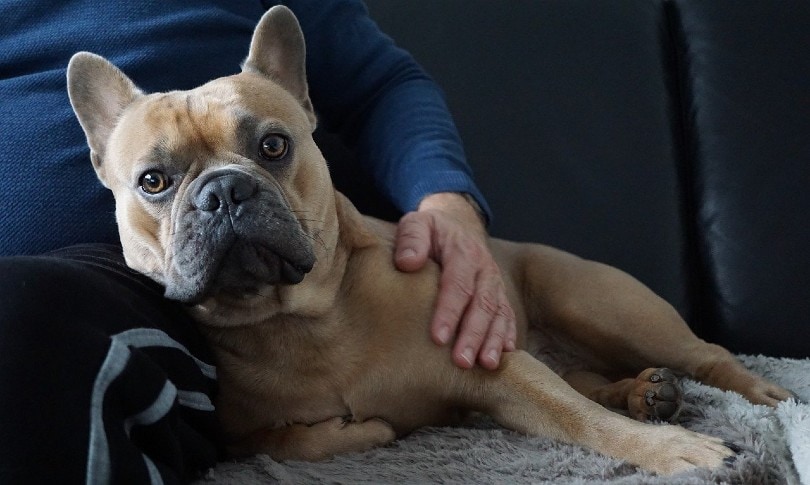
Why Do Dogs Get Jealous?
Dogs can feel jealousy for a lot of the same reasons we humans do. When we create a strong bond with another human, we may feel those tell-tale twinges of jealousy when we see them spending time with someone else or if we don’t receive the same attention that we’re used to receiving.
The same happens with dogs. When you bring a dog into your life, you begin developing loyalty and a bond between yourselves. If something occurs in your home that temporarily breaks this bond, it’s only natural for jealousy to take over. Your dog looks at you as their pack leader and becomes very loyal to you. If you physically interact with other dogs, they can see it as a bond-breaking behavior.
- Lack of attention or exercise
- Changes in their routine
- New people or babies in the home
What Are the Signs of Dog Jealousy?
Jealous humans might react to a perceived instability in their relationships by being consumed by negative thoughts. We might try to control our partner’s behavior or constantly check up on their social media accounts to see what they’re doing. Dogs do not exhibit jealousy in the same way.
Aggression
Jealousy aggression might look like growling, biting, lunging, or even attacking. This behavior can be directed towards you, other humans, or animals and often catches owners off guard.
If your dog displays aggression towards you or others, you need to let them know that the behavior is unacceptable without also becoming aggressive yourself.
Remember, in most cases, your dog has no personal vendetta against the other animal or person. It’s not that they hate them, but they may just be afraid that this person or animal will threaten their position in your home.
Accidents
Unfortunately, our pets cannot use words to communicate with us. They instead have to use actions to express themselves. Your dog might express their jealousy by urinating or defecating in areas they should, such as your home instead of outside.
Clinginess
This may be one jealous behavior that dogs and humans share. If your pup suddenly never wants to leave your side or is licking at your hand, they might be trying to get your attention. He might also try pushing himself onto your lap, squeezing himself between people, begging for attention, or even sitting on his hind legs.

Possessiveness
Dogs can become possessive of not only their toys, bedding, or other belongings they perceive as “theirs”, but their owners as well. Possessiveness can look like aggression in a lot of ways. Your dog might be displaying possessive behavior if they’re whining, snapping, growling, or attacking another animal or human.
Possessive behavior can become quite problematic if it becomes severe enough.
Overzealousness
If your dog suddenly starts performing tricks without a command, he might be desperately vying for your attention. While this behavior might be adorable at first, it is a common side of jealousy and should be treated as such and not rewarded.
Resource Guarding
If someone or something is threatening your dog’s spot in the hierarchy of your household, he may begin guarding his resources as his primal brain tells him that the new person might take away their beloved belongings.
You might notice your dog stashing his toys or food bowl in hiding spots around the house. They also might stand guard over their belongings and growl or lunge at anyone who they believe is trying to take their resources away.
Destructiveness
Your dog might turn his jealousy towards items in your home. They might begin scratching at your furniture, chewing your carpets, digging holes in your yard, eating things that aren’t food (pica), or even destroying door frames.
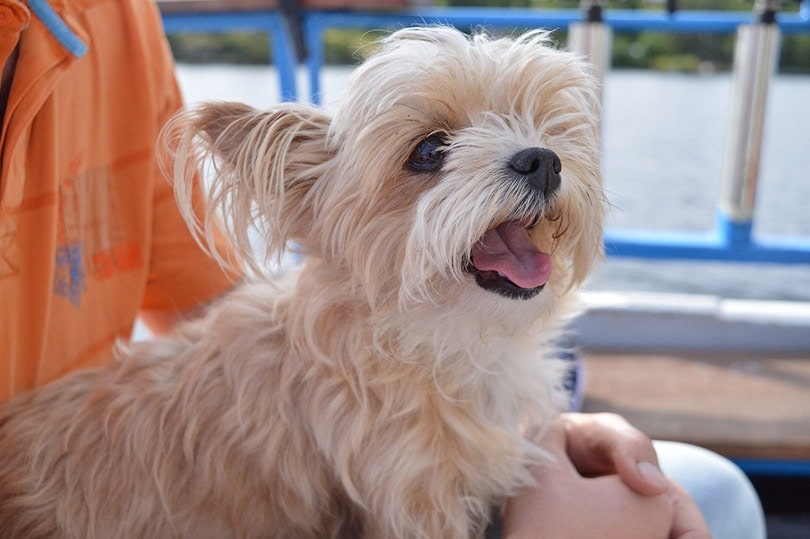
How to Combat Dog Jealousy
If your dog has a problem with jealousy, you’re probably wondering what you can do as his owner to combat these behaviors.
Reward Appropriate Behavior
You never want to reward any of the aforementioned jealous behaviors. It might be tempting to offer your dog a treat as a “peace offering” when he exhibits jealous behavior, but you must resist the urge. If you give him a treat when he behaves badly, you’re reinforcing that this bad behavior equals a tasty treat.
If your dog has a hard time meeting other dogs or seeing you interact with others, you might consider rewarding them with a treat when they do exhibit positive behaviors around other dogs. The treat rewards them for their calm demeanor and teaches them that that’s the behavior you like to see when around other dogs.
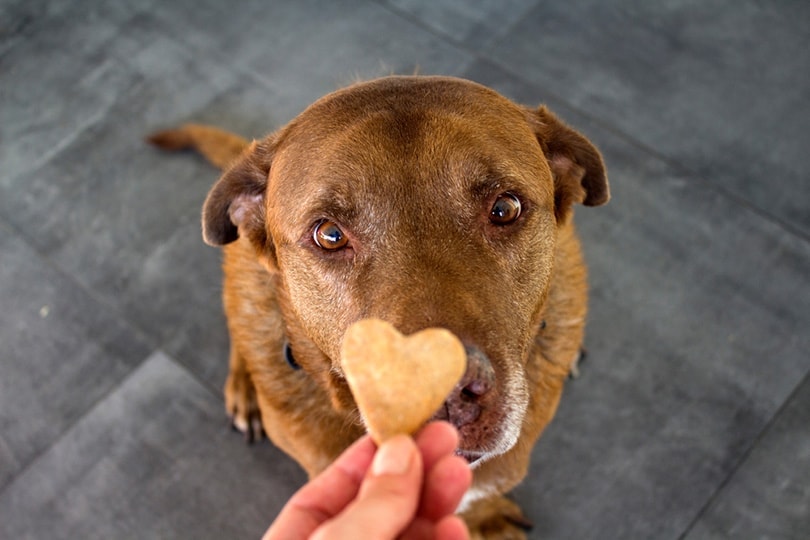
Training & Exercise
Obedience training is a great way to stop jealous behaviors in its tracks. You might consider reintegrating training sessions into your everyday routine and even start exercising your dog more often. Even just the simple act of spending more time together can re-strengthen the bond and help your dog to learn what behaviors are wanted and unwanted.
Exposure Therapy
Another great way to combat doggy jealousy is to slowly expose him to what it is that is making him jealous. Try involving the object of jealousy in your regular daily training practices.
If a new baby has brought about feelings of jealousy, bring them along with you on your walks and during playtime.
If it is a new puppy that’s causing the jealousy, take them both on short walks around the block. Nothing can get canines into the pack mentality like going outside and peeing on things together.
Ask for Help
If your dog’s jealous behavior is severe enough, you might consider calling in reinforcements. A behavioral specialist or dog trainer can help you and your pup work together to find a solution to his jealous behavior.
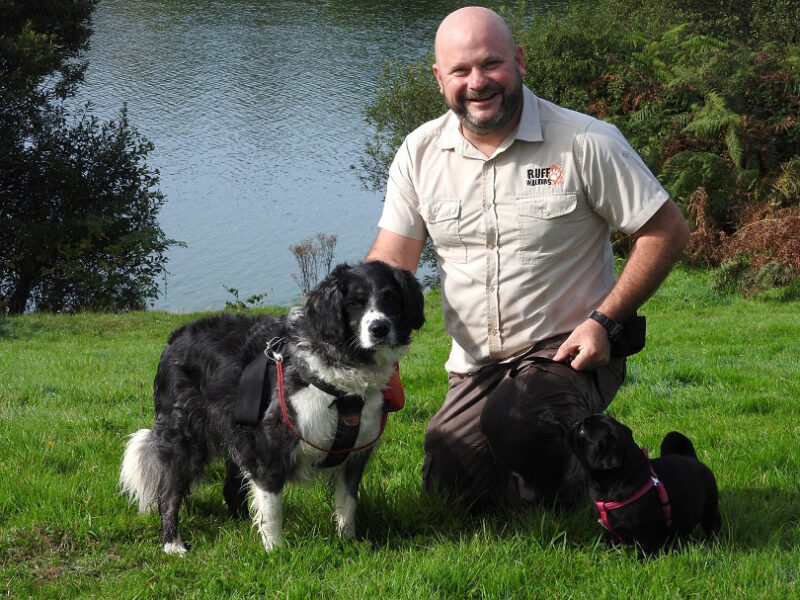
Final Thoughts
Jealous behavior can be a huge concern for dog owners, especially if your once sweet and docile dog is now suddenly aggressive with others in your household.
If your dog has been exhibiting some of the symptoms of jealousy we reviewed above, know that it is not impossible to correct these behaviors. With a little bit of effort and a lot of patience, your dog’s jealousy can become a thing of the past.
Featured Image Credit: Javier Brosch, Shutterstock




